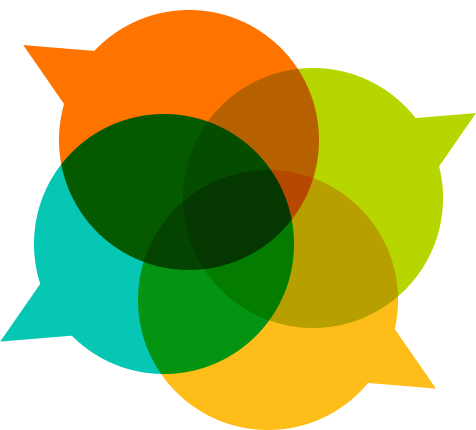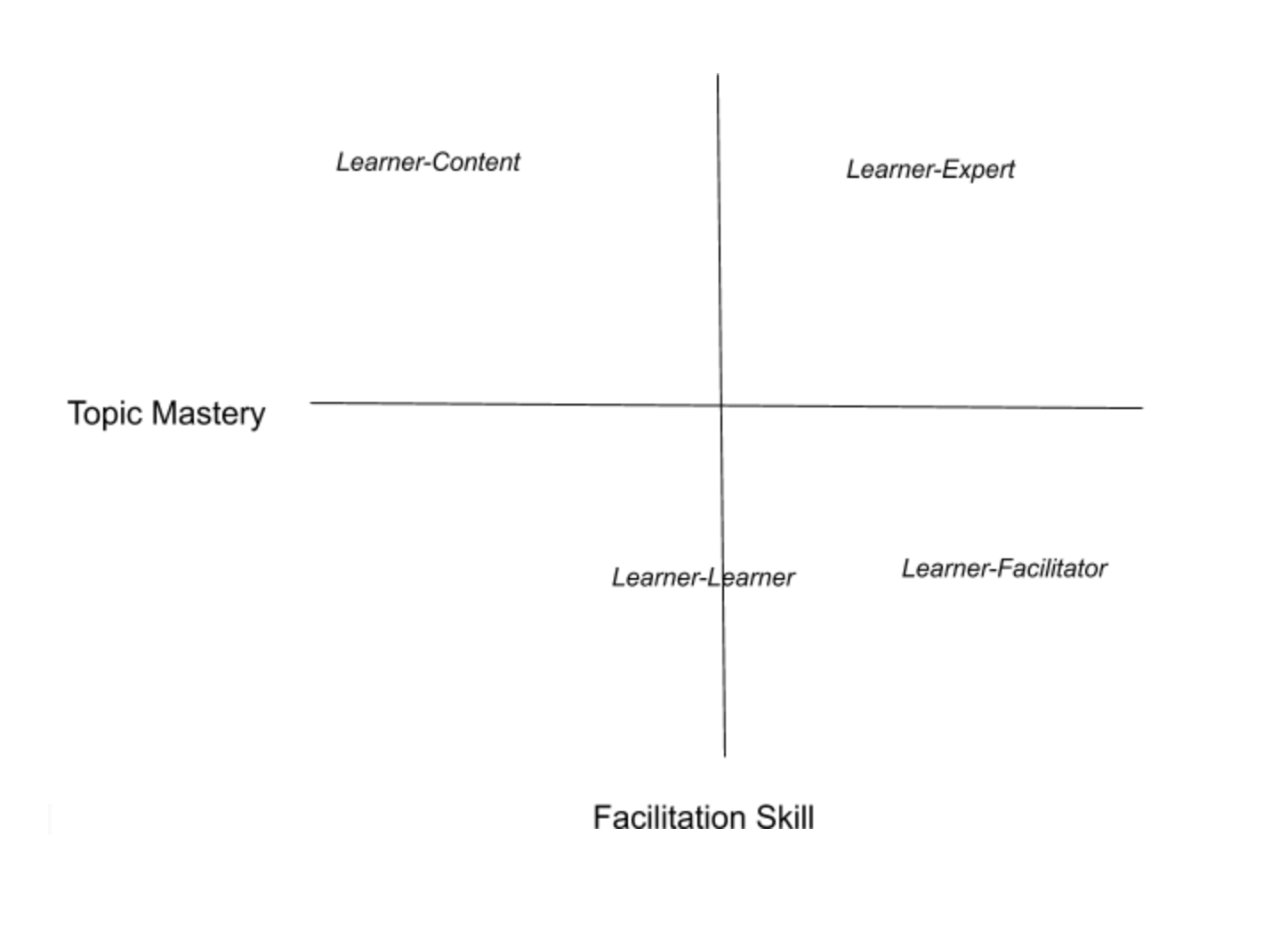I’m interested to know in all the ways, terms, or processes that could conceivably be organized to facilitate a peer-led or peer-supported learning program or one-off learning event, particularly in a public library space.
The idea here, as we’re exploring with the IMLS Pittsburgh project, would be that a volunteer at the library would be introduced to some of these models, processes, practices, and based on their interest or local need, they could introduce and facilitate these as a local one-off event or as an on-going program.
There might be better ways to frame or organize these models, but I chose to think about the type of interaction that takes place in the learning environment. Another way could be from high peer support required to low. I included more traditional non-peer led learning examples too as I think there is a role for a volunteer to organize/host/facilitate these types of learning activities as well.
Learner - Learner:
- No particular resource used.
- Peer-led learning groups with a common interest or need.
- Regularly attendance not required
- Most informal type of interactions
Examples: Meet-ups, maker spaces, local action groups, support groups, repair cafes, conversation circles.
Learner - Content :
- A particular resource, content or experience is chosen in advance.
- Peer-led learning group or event with a common interest or need.
Examples: Discussion groups, learning circles, study groups, book clubs, human library, focus groups, walking tours, Socratic circles, citizenship circles, franklin circles, popular theatre, community conversations.
Learner - Expert:
- Expert or teacher-led group or meeting.
- Most formal learning environment
Examples: lecture, mentorship, drop-in office hours, tutor, workshop, skillshare, debate
Learner - Facilitator:
- Learner-led meeting or event with facilitator.
- Facilitator trained in dialogue or activity process
- Facilitator is not a subject expert
Examples: coaching activities, project feedback, goal-setting, accountability buddy

